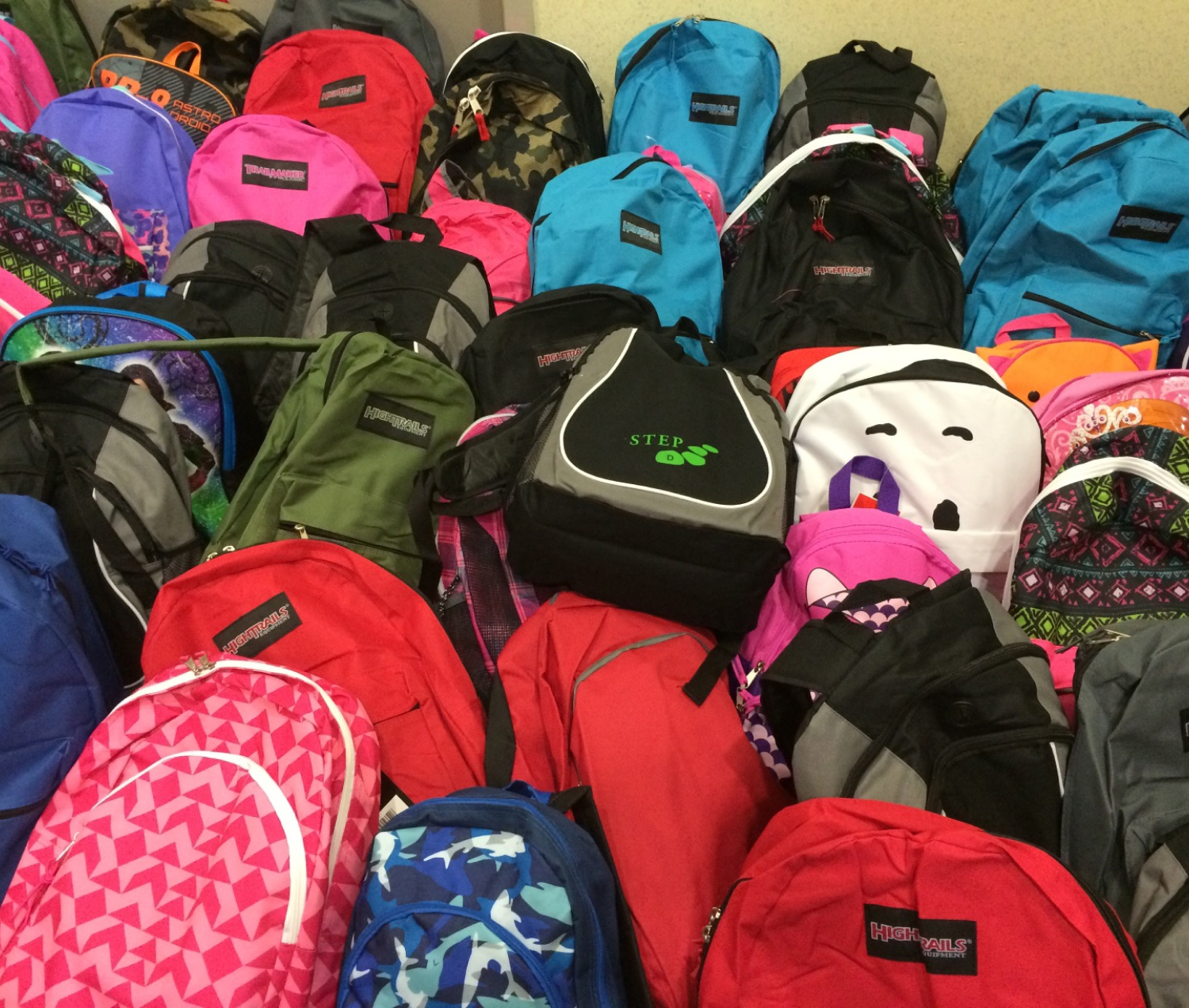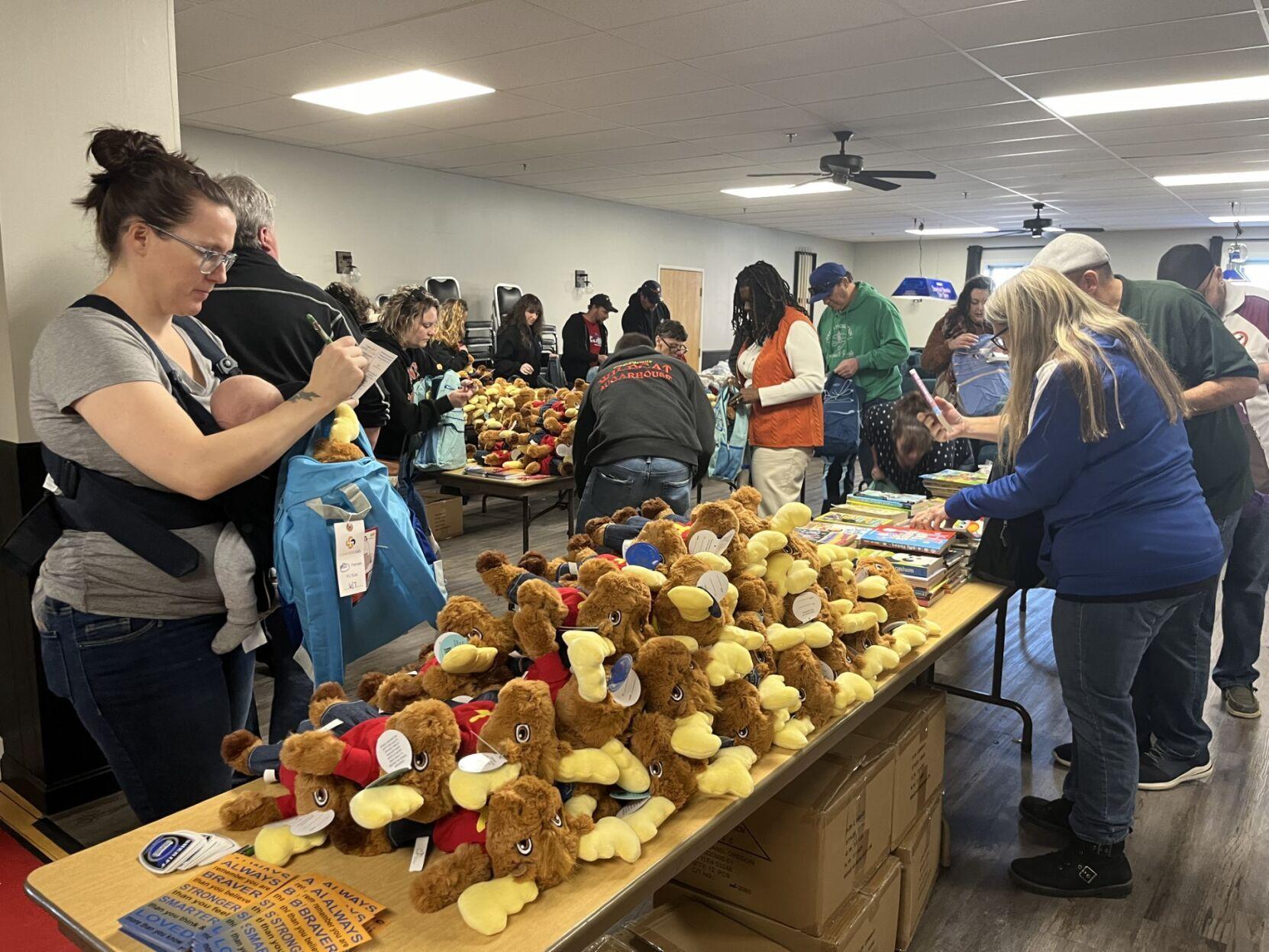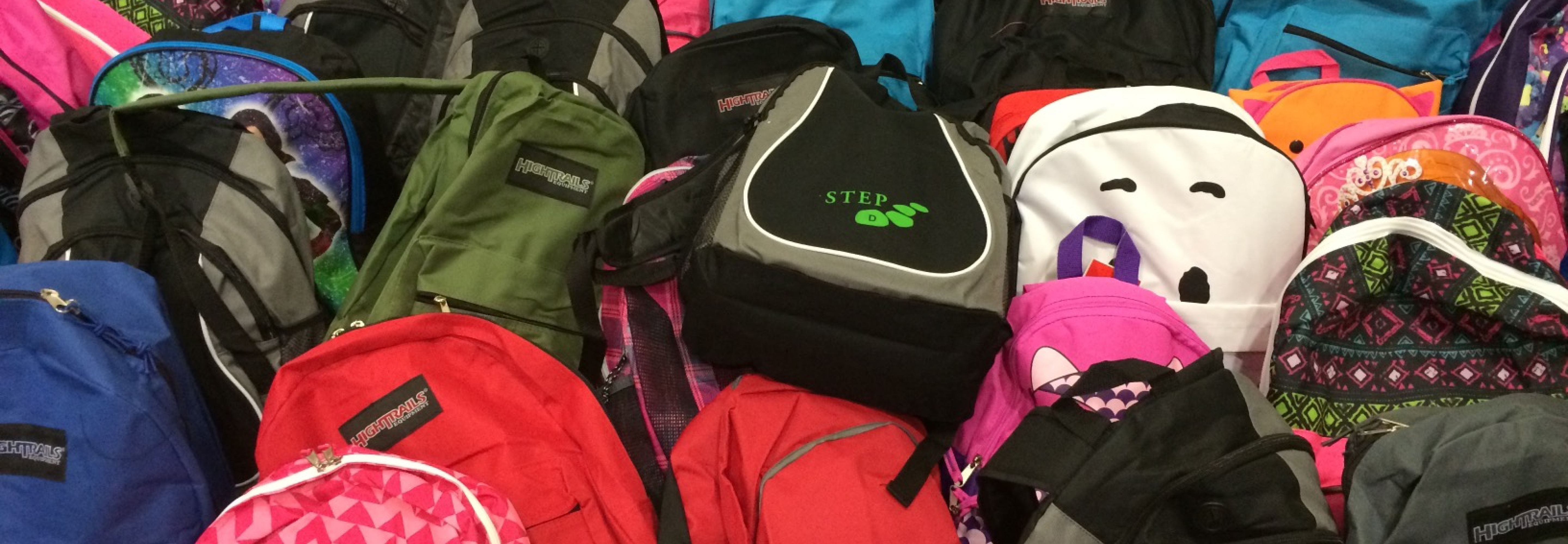
Vermont Moose lodges team up to help children in foster care

Volunteers packed into Moose Lodge 1122 in Rutland this Saturday to help make a difference in the lives of Vermont’s children in foster care.
The first event of its kind at the lodge, the Comfort Cases Packing Party invited community members to help fill 500 backpacks with essential items for Vermont youth in foster care. The event was hosted in partnership with Maryland-based nonprofit, Comfort Cases.
Dan Companion, Moose International member, said the idea for the event came from lodge members in Ellsworth, Maine, after they hosted a Comfort Cases presentation with other members from the Northeast Moose Association several months ago.
“We said, ‘We’ve got to put this together here in Rutland, Vermont, because it’s our biggest lodge. (Our) smaller Vermont lodges agreed to get together here, so we’ve got all the Vermont lodges representing us,” Companion said. “It’s amazing.”
Lodge members from across the state and even other parts of the Northeast turned out to help pack the Comfort Cases, which each contain a set of new pajamas, toiletries, a hygiene kit, a journal or activity book, a story book, a stuffed animal and a blanket.
As a nod to Moose International, each case packed on Saturday featured a stuffed animal of Tommy Moose, the face of a program within the organization that provides the stuffed animals to emergency service workers for children experiencing traumatic situations.
The rest of the items were provided by Comfort Cases.
Past Supreme Governor Tom Hatcher, creator of the Tommy Moose program, attended the event in celebration of the program’s 20th anniversary.
“There are great people and dedicated people here today. It’s really a pleasure to be here. I look forward to this type of meeting,” Hatcher said.
Comfort Cases, which was founded 11 years ago by Rob Scheer, is an international nonprofit that aims to build dignity and self-worth among children in foster care by providing them some belongings and a proper bag to carry them in. So far, the organization has provided cases to some 220,000 children.
“In 1979, I walked into foster care carrying a trash bag. At the age of 18, in 1984, I aged out carrying that trash bag and became homeless. I ended up making something of myself being a successful businessman and then started to adopt children. And as I adopted my kids from foster care, each one of them carried a trash bag. I thought to myself, ‘This isn’t acceptable.’ It’s not acceptable that we live in a country where we have over 400,000 children in foster care, and we hand them a trash bag and expect them to feel good about themselves,” Scheer said.
In Vermont alone, there are more than 1,400 youth in foster care.
To kick off the packing party, several Moose International members shared their connections to the subject with the crowd of volunteers in attendance. Sheer also told the group about his experience with foster care, both as a child within the system and a father of children previously in the system.
In addition to Moose lodge members, Department of Children and Families Deputy Commissioner Aryka Radke also attended Saturday’s event.
“(These cases) serve as a beacon of hope for children in foster care and remind them that they’re not alone,” Radke told the crowd. “It’s really important to us at DCF to have this kind of support.”
In the coming weeks, the bags will be distributed to child welfare organizations across the state.
“(This event encourages) awareness of the foster care system, adoption and how the community and us as Vermonters can come together and do these types of events. We don’t have to rely necessarily on government,” Companion said. “This is what fraternities are about — coming together as a community.”
Learn more here.

